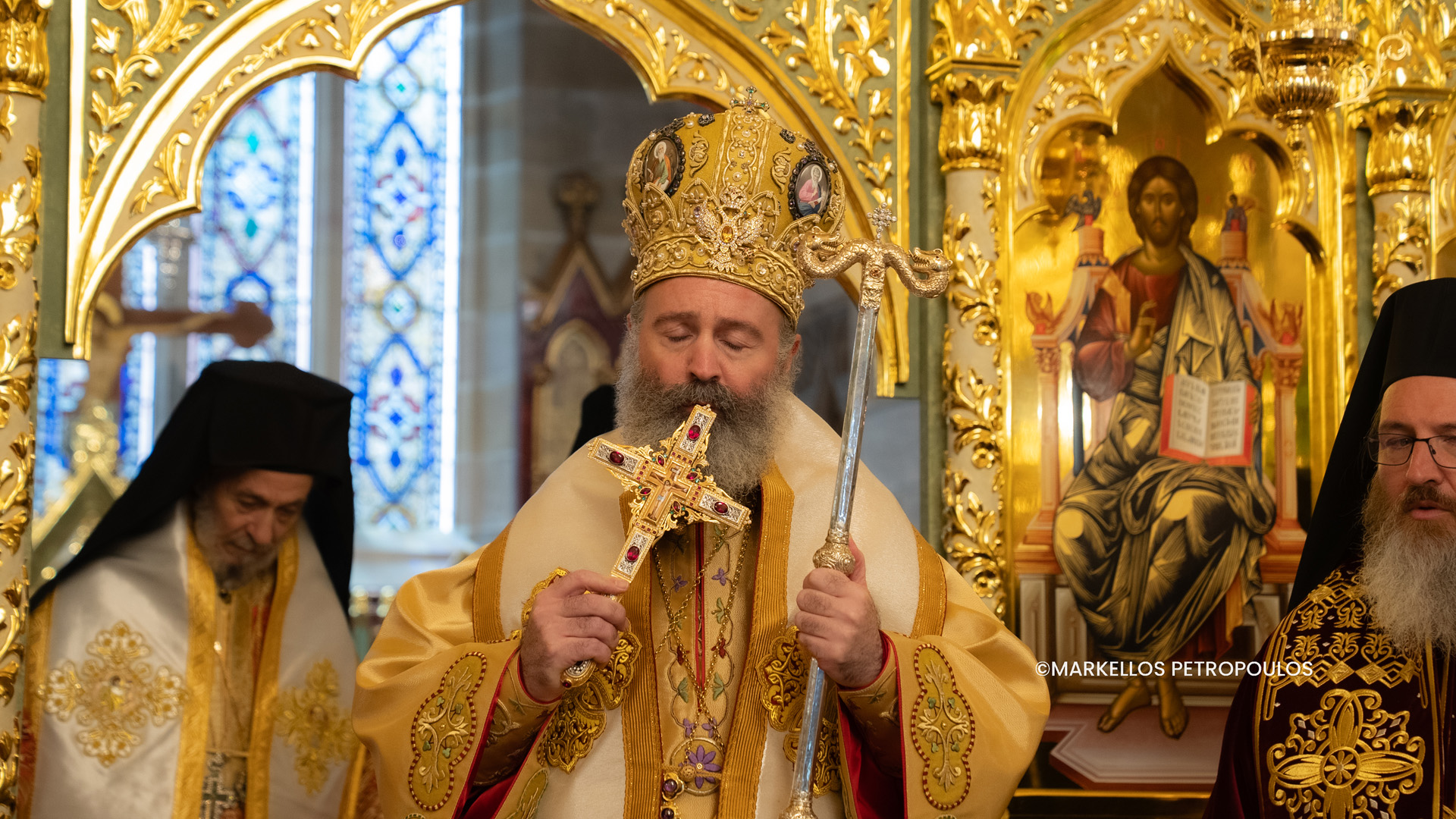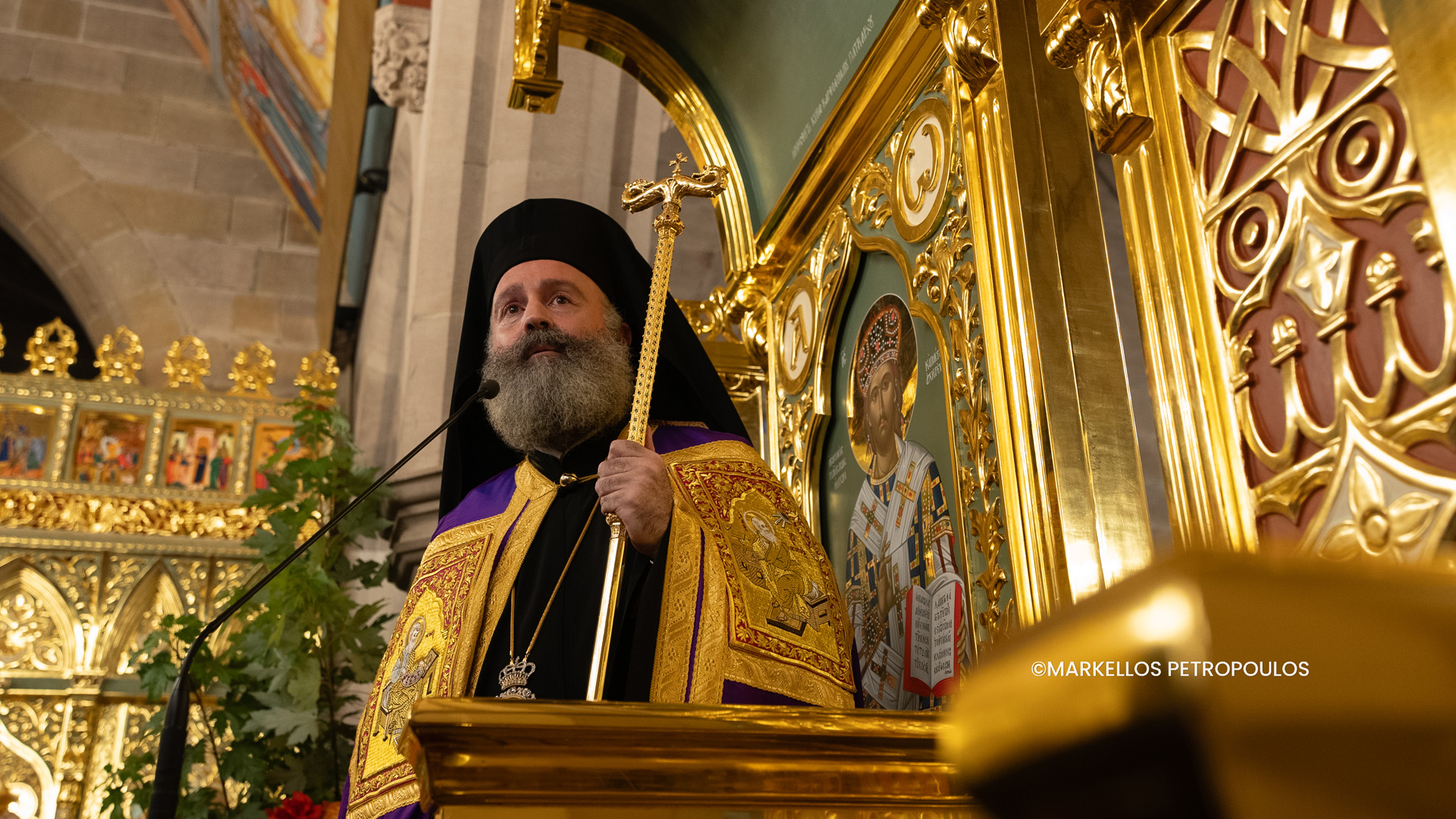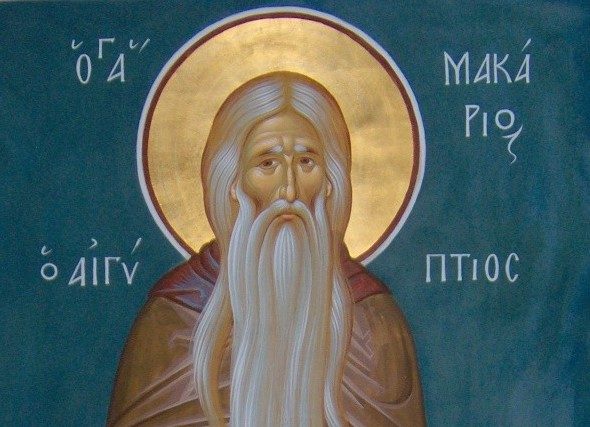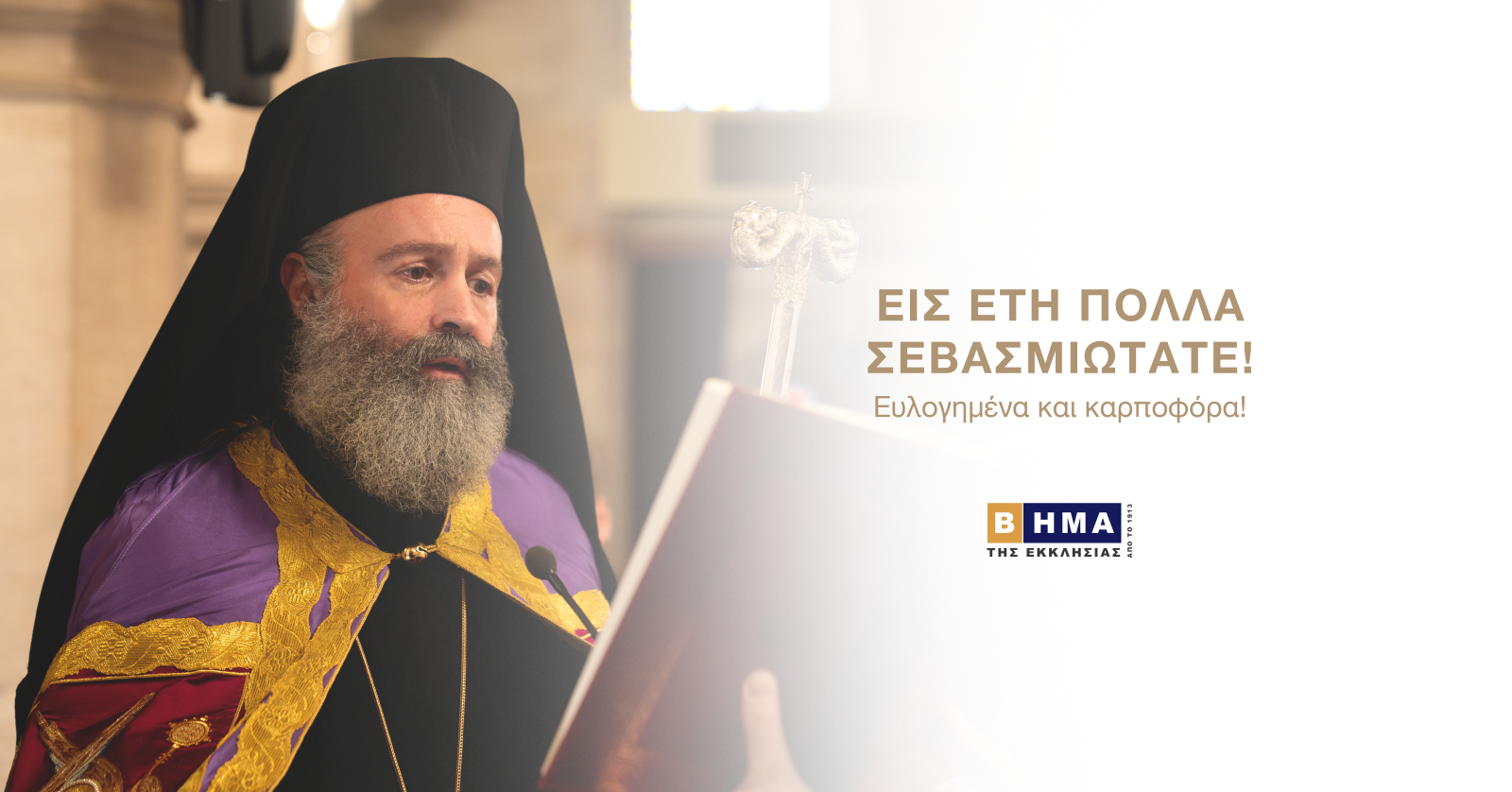45 Holy Martyrs at Nicopolis in Armenia (10 July)


The Forty-five Martyrs of Nicopolis in Armenia suffered during the reign of Emperor Licinius (311-324), who was then co-regent with Saint Constantine the Great (May 21). Licinius, the ruler of the Eastern Empire, fiercely persecuted Christians and issued an edict to put to death any Christian who would not return to paganism. When the persecutions began at Nicopolis, more than forty of those being persecuted for Christ decided to appear voluntarily before their persecutors, to confess openly their faith in the Son of God, and to accept martyrdom. The holy confessors were headed by Leontius, Mauricius, Daniel, Anthony, Alexander, Sisinius, Meneus, and Belerad (Virilad), and they were distinguished by their virtuous life.
Lycias, the procurator of the Armenian district, before whom the holy confessors presented themselves, was amazed at the boldness and bravery of those who condemned themselves voluntarily to torture and death. He tried to persuade them to renounce Christ and offer sacrifice to the pagan gods, but the saints remained steadfast. They refuted all the ruler’s arguments, pointing out to him the falseness of their vile and vice-filled pagan gods, leading those who worship them to ruin. The procurator ordered the confessors to be beaten about the face with stones, and then to be shackled and imprisoned.
In the prison the saints rejoiced and sang the Psalms of David. Saint Leontius inspired and encouraged the brethren, preparing them to accept new tortures for the true Faith, and telling them of the bravery of all those who had suffered previously for Christ. In the morning, after repeated refusals to offer sacrifice to the idols, the saints were subjected to further tortures.
Saint Leontius, seeing the intense suffering of the martyrs, and fearful that some of them might falter and lose faith, prayed to God that these torments would end quickly for all of them.
When the holy martyrs were singing Psalms at midnight, an Angel of the Lord suddenly appeared to them, and the prison blazed with light. The Angel declared to the martyrs that their contest was coming to an end, and their names already were inscribed in Heaven. Two of the prison guards, Meneus and Virilad, saw what was happening and believed in Christ.
On the following morning, Lysias decided to ask them if they had changed their minds and were willing to worship the idols. With one mouth, the Saints replied: “We are Christians! We are Christians!” Insane with rage, Lysias ordered that their hands and feet be cut off, and then threw them into the fire. After this, their bones were tossed into a river. Later on, when freedom had been given to the Church of Christ, a church was built on the spot and was dedicated to the 45 Holy Martyrs of Nikopolis.
During the reign of the wicked Emperor Licinius, who ruled the eastern half of the Byzantine Empire, there was a great persecution of Christians. In Armenian Nicopolis, St. Leontius, with several of his friends, appeared before Lysius, the representative of Emperor Licinius, and he declared that they were Christians. “And where is your Christ?” Lysius asked. “Was He not crucified and did He not die?” To this St. Leontius replied: “Since you know that our Christ died, know also that He rose from the dead and ascended into heaven.” After a lengthy discussion about the Faith, Lysius scourged them and threw them into prison, where they were given neither food nor drink. A highborn Christian woman, Vlassina, brought them water, handing it to them through the window of the prison. And an angel of God appeared to them to comfort and encourage them. When the time came for sentencing, two jailers appeared before Lysius as Christian converts, and many others as well, numbering forty-five in all. The judge sentenced all of them to death, ordering that their arms and legs be severed with an axe and their torsos then be thrown into the fire. This horrible punishment was carried out, and the souls of the holy martyrs took flight to their Lord, entering into eternal life. They honorably suffered and inherited the Kingdom in the year 319 A.D.
Source: oca.org





